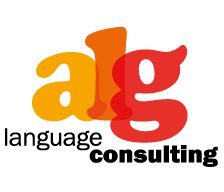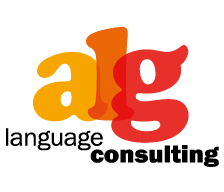In an increasingly global interconnected world, translating is an all-important profession.
In this article by ALG Language Consulting, we will explore the figure of the professional translator, describing the skills and competences required to be an expert in this field.
Who is the professional translator?
The professional translator is an expert who translates various types of written text – books, scientific articles, patents, manuals, documents, contracts, scripts etc. – from one language to another.
The starting point for this profession is perfect mastery of both the source language and the target language; a good knowledge of translating techniques and tools is also important.
Translators operate in different contexts corresponding to various types of specialization, for example: editorial, literary, technical, scientific, legal, financial, economic, marketing or advertising (including, of course, fast-growing sectors like the videogame sector).
Their task is not only to translate a text or content from one language to another, they must be able to adapt the meaning of the original document to the culture of the target language, for example they must be able to correctly render slang and regional expressions.
Professional translating skills
Being a good translator requires a combination of linguistic, cultural and technical skills.
The ability to carry out accurate document searches and to look for and find additional information on the technical terms and the cultural background to the text are fundamental qualities. Field experience and practical training alongside expert translators are also useful.
For professional translators, technical skills are essential, including knowledge of assisted translation software (CAT Tools) and automatic translation software.
Another important element is the use of quality control tools to guarantee that the translation is accurate and meets the required quality standards.
Study paths
A secondary school with emphasis on language learning can provide a good grounding in foreign languages, but for those who wish to go into the profession, there are degree courses in Modern Languages and Literature, in Linguistic and Cultural Mediation, in Translating and Interpreting, and in Linguistics.
Universities offer the chance to gain experience in this field through the organization of work experience with translation companies or with firms looking to work with language graduates.
Certifications
Translators can also use certifications to prove their skills. The best-known ones in the field of translating are issued by the American Translators Association (ATA) and by the Chartered Institute of Linguists (CIOL).
The ATA certification requires candidates to pass a written examination and provide a translation for assessment by a professional translator. The CIOL certification requires candidates to pass a written and oral examination and to demonstrate working experience in the translating sector.
Professional experience
Experience in the field of translating is fundamental to become a successful professional translator. Practice enables you to develop your knowledge of the various translating techniques and the specific characteristics of each translation sector. It also enables you to improve your communication skills and adapt your translation style to the needs of your client.
An expert professional translator has greater chances of finding work and collaborating with translation agencies and companies that require high quality translation services. Experience demonstrates the ability to manage large translation projects and provide creative innovative solutions for any challenge that may arise.



